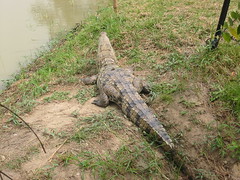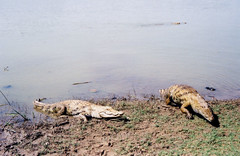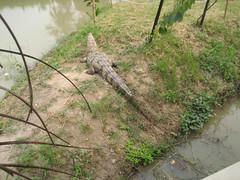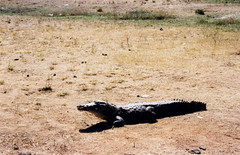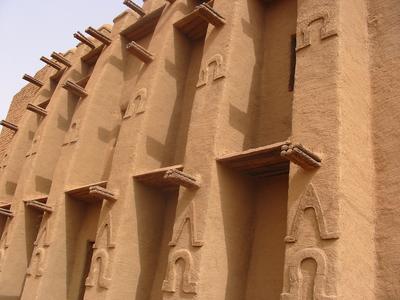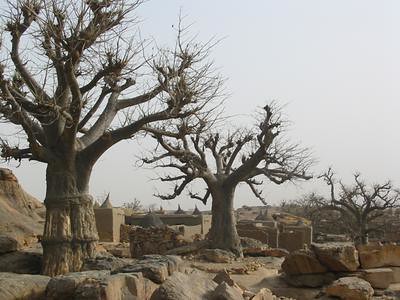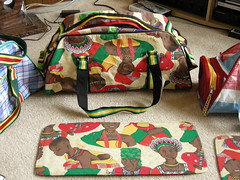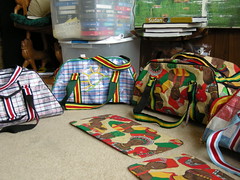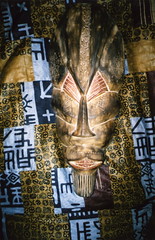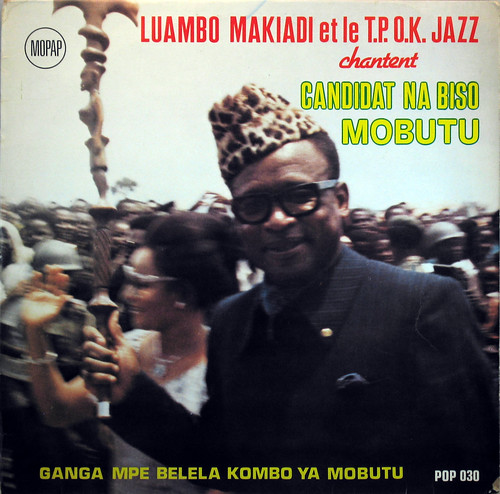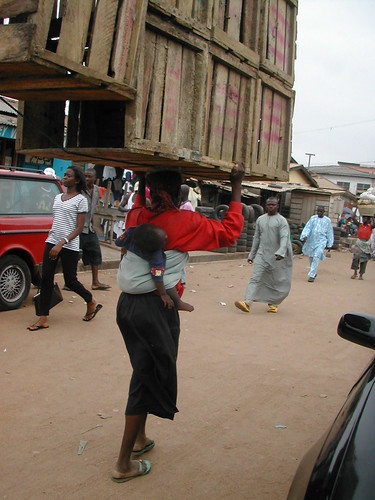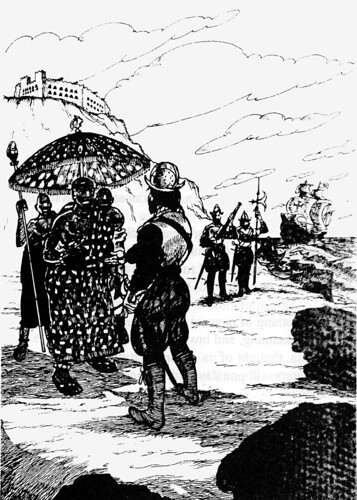Africa 1989
It struck me that we haven't heard many African voices in all the recent reminiscing about the year 1989. Anniversaries abounded. From Tienanmen Square, through the Soviet withdrawal from Afghanistan, to the fall of the Berlin Wall, we've had retrospectives on these momentous happenings. 1989 evokes loaded images, especially poignant amongst these being the transformations in Eastern Europe and beyond that affected the whole world. The year is a convenient stand-in for epochal change, Cold Wars fizzling and so forth. 1989 was similarly epochal in Africa even if our headlines were filed in the inside pages of our collective newsprint. Africans weren't mere onlookers and enjoined in the global conversation of those heady days.
I then came across some fragmentary notes I had on the year in Africa, notes I'd written when I was in a more jaundiced mood - they verged on the bleak. Writing today, however, I am more sanguine about that year, and hopeful, even as I look back. I can point to many items that genuinely warm the heart. You have to take the long view when it comes to Africa, and perhaps this accounts for the dissonance one feels about our past. Perhaps you'll be able to detect the keys in which different parts of the following were written.
I. The Reign of Locusts
Item:
Although political transformation in the 90s proved to be of variable intensity and longevity, often turned out to be new wine in old bottles, the change on the continent has been lasting. The incidence of military coups has dropped so far as to become negligible and there is an indisputable increase in functional democracies. In 1989 only three countries in Africa could claim to have democratic governments.Dig:
— Akwe Amosu musing on Democracy in Sub-Saharan Africa: Trends and Transitions (pdf) in 2007
I've often wondered what it was like to attend, say, an OAU meeting circa 1989. That must surely have been a rogues gallery sans pareil. Could you shake hands with everyone in that room and look at yourself in the mirror the next day? For that matter, could you sleep that night? And what did the small talk of the nifty fifty sound like? Scratch that, what exactly was their big talk? Inquiring minds want to know.
— Excellent Discussions
Having looked at Africa in 1966 (when innocence was lost) and written about the promise of Ghana in 1969, the faint glimpses of hope in 1992, and the pre-millennial tension of Africa 1999, and with an evident itch to scratch, I thought I'd give the toli take on continent in 1989. The 1970s and 1980s have been termed The Lost Decades in much of Africa — almost as if a plague of locusts had the run of the continent. We should tentatively file these notes under the banner of fallen angels.
Let's start with this: Robert Mugabe of Zimbabwe would likely have been the golden boy at the OAU meeting in 1989.
With 20 years hindsight, it is hard to believe that Zimbabwe was the example that the rest of Africa was being lectured about to emulate by the donors. Its vibrant economy, well managed agricultural sector, deep focus on educational achievement, and its democracy seemed without equal. Where its neighbours were basket cases, Zimbabwe appeared to be moving forward, it was the "success story". Mugabe's "egalitarian socialism" was being studied by Western cognoscenti. A stereotypical halo of smugness would surround my Zimbabwean friends of the time (side note: my Sierra Leonean comperes exuded similar confidence). Suffice to say that things can go wrong or right in a hurry.
He of The Little Green Book, Colonel Muammar Gaddafi, would have been a few years removed from the US bombing attacks that aimed to kill him, and a year removed from the reaction over the skies of Lockerbie. A French jet would suffer a similar fate in September 1989 when a bomb would kill all 170 people on board as it flew over the Sahara. There were even more potent, and certainly uncontested, acts, however, in his interaction with the West: the Provisional IRA was in full murderous effect in 1989, equipped with significant supplies of his explosive Semtex and sundry weapons; it would rotate members for training in the Libyan desert. As I recall, public transportation in London was an exercise in bomb threat delays followed on occasion by actual locomotion. The implications for West Africa of He of The Little Green Book's unmoored rage would be far more bloody I am sad to say. He was just about to unleash Charles Taylor and Foday Sankoh from nearby camps in his grand project of revolutionary agitation, and more on Liberia and Sierra Leone anon.
I won't bore you with by enumerating the long list of dictators that ruled and the havoc they caused, it makes for dismal reading (3 democracies out of near 50 countries remember). From "Comrade" Siad Barre in Somalia to Master Sergent Doe in Liberia and Sergent Eyadema in Togo, it was repression as usual. Most significant, perhaps, in this dreary military vein was that Omar al-Bashir came to power in Sudan in a coup on 30 June 1989. His regime brooked no opposition and promptly took Sudan's civil war into high gear. The legacy of Lost Boys and such ensued. Civil wars are never pretty and Sudan's was long and ugly.
Structural Adjustments
For what it's worth, in my native Ghana, Flight Lieutenant Rawlings's PNDC was typically authoritarian throughout 1989 as our Truth and Reconciliation commission has outlined. Apparently it was no contradiction for a supposed Marxist to be implementing the unpopular IMF Structural Adjustment Program, he was an early adopter on this front. General Ibrahim Babangida of Nigeria was of the same mind, and followed suit with the IMF and the World Bank. Expediency trumps everything if the preservation of power at all costs is the overt motive. Popularity or economic sense in policy doesn't matter much when you have a military regime, your populace will have to cope with whatever you dictate. It is the very definition of dictatorship. Structural Adjustment, then, was the great agenda in Africa, and many countries were being put through the wringer its paces. I'll note in passing that the term "Washington Consensus" was coined in 1989 at the very height of authoritarian rule in Africa. The Cold War bred strange bedfellows but none so ironic as the combination of mild-mannered Western financial technocrats and African dictators.
The inevitable backlash was felt from civil society, large enough to have necessitated a bit of rebranding and message massaging. In 1989, we started to hear about "structural adjustment with a human face" and its counterpart "sustainable growth with equity". This revelatory exercise in linguistics only betrayed the apparent irony that inhumanity had been the prevailing concern, with equity as an afterthought. In fairness, the legacy of these programs is mixed: the economies of most African countries did need reform after all. What is beyond question, however, is that the success stories that were being touted in 1989 were nothing of the sort, most of the gains were chimeric. Ask any Ghanaian if the 80s were good years if you want to hear a hearty guffaw. Would that the development aid cohort had their current restraint in those years, their swagger was hard to take. Some of us have long memories...
Francophone Africa presented a perfect picture of client states. Smooth operators like Omar Bongo (President of Gabon) and Houphouët-Boigny (President of Côte d'Ivoire) mixed the requisite post colonial trappings at home with the luxurious core of sleazy quasi-corporate patronage of the French political class. Call it equal opportunity looting or mere cronyism, enabled by Mitterrand and the revolving board of Elf-Aquitaine and others. France regrets those good old days. Who wouldn't, I wonder?
Mobutu of Zaire was in full flight, an unchallenged dictator systematically breaking down the social fabric of his country while breaking world records in kleptocracy. Interestingly enough, by 1989 he was a little fed up with some of the shenanigans that some of the other African rogues leaders were getting up to. These parvenus were beginning to spoil the game for everyone. In mitigation, and in a rare act of regional statesmanship, he even helped broker a peace deal (promptly broken) in Angola. Now Mobutu was not one to do anything without a pecuniary motive hence inquiring minds are wondering what he was promised for his efforts. We'll no doubt have to wait until the State Department declassifies records in 2014 for the answer. Accordingly, I've already scheduled my FOIA request in Google Calendar.
It is worth dwelling on the Angolan case. Jonas Savimbi broke the barely 2 month old ceasefire, the fruit of years of negotiations, and resumed the civil war in Angola. Master of the huhudious, Savimbi declared:
"The Angolan people, to their infinite sorrow, accept that the war has restarted."That, without any doubt, has to be the quote of the year 1989. He was the one who decided to break the peace, he didn't ask anyone, he presented the Angolan people with war as a fait accompli. He was to deepen their infinite sorrow for another 13 years.
Human Right's Watch began their Africa Watch in 1989 in their world report with a look at the Angolan case. Again it is instructive:
This refusal to criticize rebel abuses stems from the Bush administration's unwavering support of UNITA and its leader, Jonas Savimbi. For 14 years UNITA has been seeking to topple Angola's post-independence government in a war that to date has resulted in the deaths of over 100,000 people, most of them civilians. The U.S. policy of funding UNITA, first initiated by President Reagan in late 1985, has if anything been solidified under President Bush. Even before President Bush took office, he wrote to Savimbi assuring him that "all appropriate and effective assistance" would continue. Then, in 1989, to compensate for the loss of South African military and economic assistance to UNITA, the Bush administration increased the level of U.S. covert aid for Savimbi to close to $50 million. Although termed "covert," U.S. assistance is widely characterized as an "open secret." Savimbi himself made a public statement in June that Congress had renewed his aid, and was also quoted in Jeune Afrique magazine as saying that he had received $35 million in funding from the Central Intelligence Agency. Characterizing the aid as "covert," however, helps minimize Congressional and public scrutiny.
The lesson of Angola is that Africa was never innocent.
The corollary perhaps is that marauding phenomena like Jonas Savimbi did not operate in a vacuum. Proxy wars were a legacy of the Cold War, and Africa was a bloody battleground. Africans paid a heavy price. Enough.
II. The Great Awakening
The global conversation in 1989 was all about democracy. Mali led the way in Africa. Their president, Moussa Traoré, was your garden variety military ruler: no ideology to speak of save for the unvarnished exercise of power. With Mali being a poor landlocked country, he must have figured that he would have free reign. There would be no strategic interest for the Americans or the Soviet Union, the colonial power, France, had bigger and more lucrative fish to fry, and neighbouring countries only cared if refugees started streaming over the border. Everything seemed perfect and the years passed. 1989 must have been a rude awakening (1990 would be a nightmare, and 1991 would be the end). The Malian body politic and social compact reacted to his rule as if to an emetic. Malians were simply fed up with military rule and the attendant violence and arbitrariness. Slowly and systematically from 1988 on, they organized themselves to take back their country. It was a truly impressive sight throughout 1989. No external motivation was needed, a society simply decided to change its direction and moved.
Historians ask the same question about Leipzig in 1989. Why did people lose their fear? From the trade unions, to the students, the teachers, the lawyers and other professionals, all the way to the farmers, the consensus was that multi-party democracy was the way forward. Newspapers appeared without approval and served as forums for discussion over the shape of democracy to come. It wasn't unanimous, and the process had its twists and turns but the atmosphere changed. Those sensible Malians lost their fear and brought about lasting change. The proviso, with this being Africa, was that there would be needless deaths along the way (a massacre of 300 protesters in 1991 being the final straw). The miracle in Mali is how we now call it. Mali was the first to turn the tide to genuine democracy in the 90s, an impressive beacon for the rest of the continent.
Ghana's version of 1989 was in a minor key and actually started over the course of a few weeks in 1987. It was a series of public lectures by a history professor, Alfred Adu-Boahen, on a sober topic: The Ghanaian Sphinx. Reflections on the Contemporary History of Ghana, 1972-1987. It is hard to believe that there was a time when such comparatively mild criticism would have condemned you to harassment, jail or worse, but that was the case at the height of the reign of Flight Lieutenant Rawlings' junta. Arbitrariness, and a malign and heavy hand were the weapons of choice. The only forms of resistance in the eighties were exile on the one hand, or the culture of silence on the other. Said culture of silence was attacked head on during these lectures and the spell was decisively broken.
The metaphor of the Ghanaian Sphinx - that puzzling acquiescence to authority and silence in the face of privation and worse, was outlined and a solution was proposed. It was a simple formula: plain speaking about the history of Ghana since independence and calling things by their name with lucidity. His argument made a difference and the atmosphere in the country changed. The fight for democracy was enjoined and much of Adu Boahen's blueprint has been followed over the years. If only there had been more such profiles in courage. Would that more had stood up and been counted.
The immediate and major difficulty in this effort was that political parties were not allowed in Ghana. 8 years of military rule had cowed the opposition. To the extent that there was any politics in the country it was to be found in social groups without any agenda. Ghanaians vied to compete to be secretary of football supporters' associations, book appreciation clubs or bible study groups. Even the Danquah lectures were framed as simply educational lectures. It would require considerable reorientation to force the issue. Still a conversation was started and Ghanaians began to organize themselves. Indeed in 1990, a Movement for Freedom and Justice was formed to pressure for change and a return to civilian rule. The first fruits of this pressure was with the news media. The Catholic Standard resumed publication (religion being the major (only) growth industry in the country). More crucially, a few independent newspapers were allowed to come into existence, the Ghanaian Chronicle the most significant among them. Over a next decade, these newspapers and then the new FM radio stations that started broadcasting would prove crucial in securing democratic gains - monitoring elections being one of their essential contributions.
Another history professor, Laurent Gbagbo, was speaking up in Côte d'Ivoire against President Houphouët-Boigny whose recently completed basilica, Our Lady of Peace of Yamoussoukro, was the largest church in the world. By then he had been in power almost as long as Castro and Kim Il Sung of North Korea. The sly fox was nothing if not resilient and hanged on to power until his death a few years later. With hindsight, it would have been better if Gbagbo had been successful in his efforts in 1989 (or for that matter in the 70s when Houphouët first put him in jail). He was a very different (read compromised) man when he would come into power in 2000. The damage was done to the social fabric of Côte d'Ivoire during the lackluster years of the 1990s when each leader in the political class outdid themselves in demagoguery and never failed to disappoint their compatriots.
Algerians turned out in masses and overwhelmingly approved a new constitution at the start of 1989 to pave the way to multi-party politics. The generals seemed to go along with the decision but would have second thoughts about democracy at the culmination of the process in 1992 when it appeared that Islamist parties were poised for victory. A murderous civil war then ensued. In 1989 however things were looking up. In most of Africa, there seemed to be a great awakening and signs of life.
The strongmen in Africa fought these encroachments on their freedoms like all powerful men are wont to do: tooth and nail. It was the eternal dynamic of the confronted authoritarian: delay, ignore, suborn, bribe when expedient, divide and conquer and that old standby, the demonstration of violence. After 1989 there would be less room for maneuver and many had to tone down their outrages against human rights and democracy. The result was that the 1990s would see a spate of elections. True, in many countries, it was only lip service that was being paid in these elections, hence the frequent resort to of vote rigging; in other countries, however, there would be genuine transitions. 1989 gave impetus to these nascent movements.
III. A South African Detour
A conventional reading of South Africa in 1989 would run with the Great Man theory, namely that the secret negotiations that had began with an imprisoned Nelson Mandela in 1988 continued throughout the year and would culminate in his release in 1990. All this would understate the complications on the ground and the considerable effort expended to rid the country of apartheid.
There was continued internal pressure by the banned ANC, persistent strikes by the trade unions and general defiance in the townships. There were significant external pressures, whether through economic sanctions or consumer boycotts, that forced the divesting of holdings of South African enterprises and a shunning of exports. Military, diplomatic and cultural pressures weighed on the regime.
There was a lot of geopolitics involved and some point to the crucial impact of the battle of Cuito Carnival the previous year in Angola where South Africans and their proxy army, Jonas Savimbi's UNITA movement, were forced to a stalemate by the MPLA and their Cuban reinforcements. After much diplomatic untangling of the situation, the Cubans went home, South Africa agreed to Namibian independence, and Angola's MPLA agreed to a truce with UNITA. You can read Chester Crocker's self serving memoir, High Noon in Southern Africa, for the naive account of what transpired... The irony of the book's title and indeed the outlook it betrays will be tackled later. Sam Nujoma would lead Namibia to independence in 1990 after what had been long hard-fought war. South Africa would begin to stop meddling in its neighbour's affairs.
In 1989, the world learned that hit teams of South African police were assassinating people "in Swaziland, Lesotho, Mozambique, Zimbabwe and Britain, as well as inside South Africa". All opponents of the apartheid regime were fair game. The moral opprobrium against P.W. Botha's would weigh on his successor De Klerk. The optics were not in their favour. The rest of Africa made their thoughts clear. The ANC proposed, and the OAU adopted its Harare Declaration on August 21 1989
We recognise the reality that permanent peace and stability in Southern Africa can only be achieved when the system of apartheid in South Africa has been liquidated and South Africa transformed into a united, democratic and non-racial country. We therefore reiterate that all the necessary measures should be adopted now, to bring a speedy end to the apartheid system, in the interest of all the people of Southern Africa, our continent and the world at large.Note, if you will, how the same story was reported in the New York Times: "South Africa Rebel Blueprint Backed by Regional Leaders".
The spin in the paper of record reflected the prevailing conventional wisdom in the USA. We must never forget that Ronald Reagan, George Bush the first, Margaret Thatcher and their bagmen, still saw themselves as allies of the apartheid regime. To their dying day, they should be tarred with their association, nay commission, with some of the most awful lot in history. There were many misadventures and much blood spilled in the Great Games of the Cold War; the support by these governments for apartheid is unambiguously egregious.
And it bears reminding that the struggle for liberation of South Africa was still a close run thing - note the headlines from that same day: "New Wave Of Arrests In S. Africa; Apartheid Resisters Go Into Hiding"
Leaders of a three-week-old campaign to defy apartheid restrictions began going into hiding today to elude a new wave of arrests by South African police as the government of acting President Frederik de Klerk intensified its crackdown on activities aimed at disrupting next month's segregated elections for Parliament.Still the sensible folks prevailed:The Cape Province turmoil has been viewed as a campaign against elections for the tricameral Parliament, in which Coloreds and Indians have separate-and mostly powerless-chambers. South Africa's 23 million blacks have no representation in Parliament.
The police crackdown on dissent appears to be the government's response to criticism by the far-right Conservative Party that de Klerk has gone "soft" on security, especially after the announcement that the acting president will travel to Zambia next Monday to meet with President Kenneth Kaunda, Africa's leading patron of the exiled African National Congress, which is South Africa's most powerful anti-apartheid resistance group.
We believe that a conjuncture of circumstances exists which, if there is a demonstrable readiness on the part of the Pretoria regime to engage in negotiations genuinely and seriously, could create the possibility to end apartheid through negotiations. Such an eventuality would be an expression of the long-standing preference of the people of South Africa to arrive at a political settlement.That thankfully came to pass. The ANC won the 1994 elections.
At the end of the year, the General Assembly of the UN adopted its Declaration on Apartheid and Its Destructive Consequences in Southern Africa (pdf). Again this was over the strenuous objections of Bush and Thatcher. Lest we forget.
IV. Decentralization
In many arenas in 1989, Africans were beginning to route around central governments. The Big Men still mattered but civil society looked to assert itself. Change was in the air and decentralization was the result. The caveat as ever would be that the institutions took some time to follow the lead of the people; it is the African way it appears. A few years later, Yassin El-Ayouty would write "the world has completely changed since 1989; the OAU has not, since 1963" (The Organization of African Unity After Thirty Years). As someone who rails against stodgy institutions, I am heartened by the decentralization that continues to take place throughout Africa, it keeps leaders on notice.
Where the Organization of African Unity was barely more than a club for the "big men" first of African independence and then of cold war politics, with a gentleman’s agreement not to interfere in each others affairs, the African Union is a institution whose statutes affirm the importance of substance, of accountability, of human rights, and the obligation to uphold those rights not only at home but in your neighbor’s back yard too. Undoubtedly in practice, these aspirational standards are often not met and the development of these institutions is a work in progress; but the challenge is no longer the lack of standards but enforcement.
— Akwe Amosu - Democracy in Sub-Saharan Africa: Trends and Transitions (pdf)
In the field of health care and public policy, The Bamako Initiative was beginning to bear fruits. Again, starting from Mali, we got concerted efforts in health care and population issues. The emphasis was on decentralization and getting local communities involved in decision making that affected them. The strategy would inform later efforts at poverty reduction.
The most useful document I've found to evaluate Africa in 1989 is a long-term perspective study by the World Bank: From crisis to sustainable growth - sub Saharan Africa (pdf). It is comprehensive and fodder for historians, social scientists and mere bloggers.
Decentralization has been essential in bringing about change in Africa and often times it hasn't been a matter of conscious policy. It turns out that things like cell phones and FM radios are the great equalizers for democracy and help move beyond social communication to the political and economic realm. We should all search for more in that vein.
V. Enter The Gremlin
He could have been a mere footnote, but it wasn't to be. He was a mere anecdote for me on Boxing Day of 1989. Annoyed as I was that my mother had worked on the holiday, she deflected my irritation by mentioning this man who had called up the BBC and told her that he had invaded Liberia. That was most people's introduction to Charles Taylor and his unique brand of malevolence. It was bemused entertainment for a journalist but he gave such good copy, a fluent mixture of hubris and cold calculation. He was going to "bring the bitterness of war to Liberia", launch a revolution throughout Africa, and overthrow Master Sergent Doe.
From the first 10 men who joined him from Libyan camps to all the subsequent marauding armies that came into play, Charles Taylor has destabilized no less than eight countries. The casualties and the brutality was impressive. The callousness was biblical, the innovations of small boys units in warfare absolutely diabolical, and the savagery simply unmatched. Much as I wish to dwell on democratic change that 1989 presaged, I have to admit that Charles Taylor and the civil wars that he fomented since 1989 loom large throughout Africa. He may sit these days on trial in The Hague but he casts a dismal and influential shadow. Liberia and Sierra Leone suffered the most in the bloody free-for-alls; Cote d'Ivoire vacillates and many others are picking up the pieces twenty years later. The events of the past year in Guinea can even be read as further aftershocks of the Charles Taylor earthquake.
Blood and sin was Charles Taylor's unique contribution to Africa.
The pervasiveness and intensity of looting, pillage, and plunder by the leaders and the rank and file, the lack of a stable and systematically organized structure of command and control among the armed bands, the criminal misuse of children, the employment of strategies of confidence artistry, the opportunistic use of a variety of cultural symbols, the orchestration of a state of anarchy as the normal environment of operation are all constitutive of the behavior of gangsters who use terror as their ultimate instruments of control. This mode of control draws from the worse aspects of an array of cultures ranging from the culture of urban gangsters and small town confidence artists of western society, and the area boys and swindlers of West African cities to marauding murderers.It is a dubious legacy, and it all started in 1989.
— Amos Sawyer - Violent Conflicts And Governance Challenges In West Africa: The Case Of The Mano River Basin Area (pdf)
VI. A Year in Music
There was lots of politics on the agenda in 1989, and lots of dancing too. A playlist for your listening pleasure
- Fela Anikulapo Kuti & Egypt 80 - Beasts of No Nation
Call it politics with an insistent groove, 28 minutes of delicious afro-beat. Fela wrote his sign of the times, broadening his usual critique of the Nigerian government with a fierce attack on apartheid and its enablers (see Reagan, Thatcher and P.W. Botha on the album cover) in particular, and more generally on many leaders: "animals in human skin" was his characterization. The lyrics include a detour on the United Nations and its relevance for Africa
Dem call the place, the "United Nations"
Hear-oh another animal talk
Wetin united inside "United Nations"?
Who & who unite, for "United Nations"?
No be there Thatcher and Argentina dey?
No be there Reagan and Libya dey?
Is-i-rael versus Lebanon
Iran-i-oh versus Iraq-i
East West Block versus West Block East
No be there dem dey oh- United Nations?
Dis "united" United Nations
One veto vote is equal to 92 (Or more, or more)
What kind sense be dat, na animal sense? (2x) - Maze - Mandela
The prime purveyors of silky soul music asked "When will they set you free? Why it has taken so long is a mystery". The chorus, "Freedom's on the way", said it all and they backed it up with another short intrumental titled, appropriately enough, Africa
- Stevie Wonder - Skeletons
After a long hiatus, Stevie took on apartheid at album length, it was a return to form. I've discussed his deft timing before. - Hugh Masekela - Uptownship
South Africa's finest was still in exile then, the music was strong as ever. - Lisa Stansfield - All Around The World
Beautiful soul music. - Janet Jackson - State of the World
Earnest inquiries with a Minneapolis sound backing. - Public Enemy - Fight The Power
Incendiary Bomb Squad production meets brash lyricism. - Redhead Kingpin & The FBI - Do The Right Thing
Would that more people did the right thing. - Entouch - II Hype Laidback grooves
- De La Soul - Say No Go
The Native Tongues went afrocentric and were the torchbearers after hip-hop's annus mirabilis (1988). - Digital Underground - Doowutchyalike
Freedom was in the air - Big Daddy Kane - Another Victory
He was Young, Gifted and Black - Farley Jackmaster Funk - Love Can't Turn Around
House music came of age - Ten City - That's The Way Love Is
Chicago, Detroit and London were pushing the envelope. - Ziggy Marley And The Melody Makers - Look Who's Dancing
Coming into his own. - Neneh Cherry - Buffalo Stance
Between soul and hip-hop - Heavy D. & The Boyz - We Got Our Own Thang / Somebody For Me
Teddy Riley and Al B. Sure were very busy in 1989; Heavy D was "strictly Big Tyme". - Wrecks-N-Effect - New Jack Swing
- Stephanie Mills - Something In The Way You Make Me Feel
No one does a ballad like Stephanie. - Quincy Jones - The Secret Garden (featuring Barry White, Al B Sure!, El Debarge, James Ingram)
Chocolate heaven. - Super Diamono - Diaraf (Jaraaf)
Essential Mbalax from Super Diamono de Dakar. The Cheikh Anta Diop album features Omar Pene singing like an angel. - Soul II Soul - Keep on Movin'
Club Classics Volume One was a miraculous album. Keep on moving was the right message for 1989.
What were your memories of Africa in 1989?
File under: history, review, 1989, politics, culture, Africa, democracy, change, Mali, Ghana, South Africa, Angola, Liberia, Charles Taylor, war, rogues, music, toli